#The Vatican Library Collection
Explore tagged Tumblr posts
Text
The Sistine Hall of the Vatican Library

The Library was formally established in 1475 AD.
Although it is much older, it is one of the oldest libraries in the world and contains one of most significant collections of historical texts.
It has 75,000 codices from throughout history, as well as 1.1 million printed books, which include some 8,500 incunabula.
#Sistine Hall#Vatican Library#library#historical text#incunabula#printed books#books#history#book collection
20 notes
·
View notes
Text


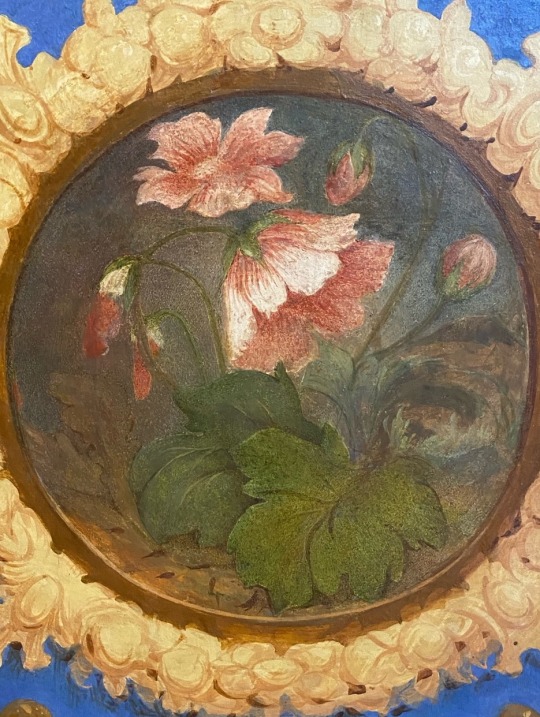
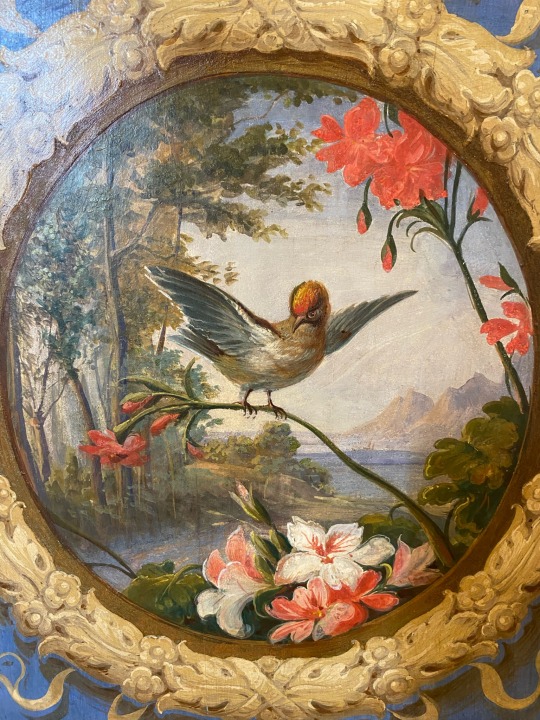
vatican museums
#dark academia#aestethic#painting#it’s actually paintings on the wooden doors of cabinets that used to house the Vatican library collection 🥺#they’re a bit kitschy but also a Vibe I feel like 🤑#Rome#Italy#mine
2 notes
·
View notes
Text



Manuscript Monday
Today we will be exploring our facsimile of an Exultet Roll, a southern Italian manuscript originally produced around 950 CE. This is a long scroll (24 feet long, unrolled) containing the text and chant notation for the Exultet, or Exsultet, which is a chant performed at the Easter Vigil mass, usually by a deacon before the congregation. It celebrates the night of the resurrection of Jesus, and is performed in praise of the Paschal candle, which is lit at every mass during the liturgical year. This candle slowly melts down until it is almost completely depleted, and then it is replaced at the Easter Vigil each year.

Although today it is usually chanted in the vernacular language of the Church being attended, this chant is referred to as the Exultet due to the first Latin word of the chant, which begins 'Exultet iam angelica turba coelorum' ('Let the angelic host of heaven exult').
Personally, one of my favorite parts of the Exultet chant is the portion known as the 'Praise of the Bees', which is said to be a reference to Virgil's writings in the Aeneid. This portion of the chant praises the work of the bees done to create the wax with which the Paschal Candle is made:
On this, your night of grace, O holy Father, accept this candle, a solemn offering, the work of bees and of your servants' hands, an evening sacrifice of praise, this gift from your most holy Church. But now we know the praises of this pillar, which glowing fire ignites for God's honor, a fire into many flames divided, yet never dimmed by sharing of its light, for it is fed by melting wax, drawn out by mother bees to build a torch so precious.

The codex -- books bound on one side as we know them today -- had long replaced the scroll by the time this manuscript was produced. So, why is this manuscript in the form of a scroll, rather than a codex? The reason is due to its ceremonial use at the Vigil mass. As the deacon chanted the Exultet, he would actually let the scroll unroll over the front of the ambo, so that members of the congregation could see the illuminations on the manuscript. Because of this use during the mass, these scrolls also have a peculiar feature: the text is written in an opposite orientation to the illuminations. This allowed the deacon to recite the chant accurately while the images were also oriented correctly for the attendees of the mass.
Use of Exultet scrolls during the Easter Vigil is unique to Southern Italian Catholic churches around Benevento and Montecassino and began being produced in the 10th century. All extant Exultet Rolls today were made between the 10th and 13th century.


Our facsimile is a reproducton of the Vatican Library's Codex Vaticanus Latinus 9820 and was published in Graz by the Akademische Druck- u. Verlagsanstalt in 1975. There are currently no complete images of the Scroll online, but the Vatican Library does have a digitized document explaining the condition of the scroll when it arrived there around 1200 CE.

View more manuscript posts.
View more Manuscript Monday posts.
– Sarah S., Former Special Collections Graduate Intern
#manuscript monday#manuscript#manuscripts#illuminated manuscripts#exultet roll#Exultet scroll#Easter#Easter Vigil#Catholic#Codex Vaticanus Latinus 9820#Codex Vat. Lat. 9820#Akademische Druck- u. Verlagsanstalt#manuscript facsimile#facsimiles#scrolls#Vatican Library#Vatican#Sarah S.
207 notes
·
View notes
Text

okay I think we should take inventory of what we learned about Marius's house.
In fact, the impression was one of comfortable messiness.
(i think the tiktok kids started calling ADHD clutter clustering or something LMAO marius de romanus cluster girlie i guess. thanks i hate it)
Here's some stuff that Marius had on his island!!!!!!!
stone benches
a lighted oil lamp on a stand
a pair of heavy wooden doors
a sarcophagus with a plain lid, cleanly fashioned out of diorite
The lid plated in iron and contained
a golden mask, its features carefully molded, attached to a hood made up of layered plates of hammered gold.
a pair of leather gloves covered completely in tinier more delicate gold plates like scales.
a large folded blanket of the softest red wool with one side sewn with larger gold plates
Magnificent Grecian urns on pedestals in the corridors
great bronze statues from the Orient
exquisite plants at every window and terrace open to the sky.
Gorgeous rugs from India, Persia, China c
giant stuffed beasts mounted in lifelike attitudes-
--the brown bear,
--the lion,
--the tiger,
--even the elephant standing in his own immense chamber,
--lizards as big as dragons,
--birds of prey clutching dried branches made to look like the limbs of real trees.
brilliantly colored murals covering every surface from floor to ceiling
a dark vibrant painting of the sunburnt Arabian desert complete with an exquisitely detailed caravan of camels and turbaned merchants moving over the sand
a jungle warming with delicately rendered tropical blossoms, vines, carefully drawn leaves
creatures everywhere in the texture of the jungle-
--insects,
--birds,
--worms in the soil-
too many monkeys in the jungle,
too many bugs crawling on the leaves.
thousands of tiny insects in one painting of a summer sky.
a large gallery walled on either side by painted men and women staring at me
Figures from all ages these were-
--bedouins,
--Egyptians,
--Greeks and Romans,
--knights in armor,
--peasants
--kings
--queens.
--Renaissance people in doublets and leggings,
--the Sun King with his massive mane of curls,
--people of our own age.
droplets of water clinging to a cape,
the cut on the side of a face,
the spider half-crushed beneath a polished leather boot.
a library, blazing with light.
Walls and walls of books and
rolled manuscripts,
giant glistening world globes in their wooden cradles,
busts of the ancient Greek gods and goddesses,
great sprawling maps.
Newspapers in all languages lay in stacks on tables.
Fossils,
mummified hands,
exotic shells.
bouquets of dried flowers,
figurines and fragments of old sculpture,
alabaster jars covered with Egyptian hieroglyphs.
comfortable chairs with footstools,
candelabra or oil lamps.
a forest of cages.
birds of all sizes and colors
monkeys
baboons,
Potted plants crowded against the cages-
--ferns and
--banana trees,
--cabbage roses,
--moonflower,
--jasmine,
--other sweetly fragrant nighttime vines.
purple and white orchids,
waxed flowers that trapped insects in their maw,
little trees groaning with peaches and lemons and pears.
a hall of sculptures equal to any gallery in the Vatican museum.
adjoining chambers full of paintings,
Oriental furnishings,
mechanical toys.
fine rosewood paneling with framed mirrors rising to the ceiling.
painted chests,
upholstered chairs,
dark and lush landscapes,
porcelain clocks.
A small collection of books in the glass-doored bookcases,
a newspaper of recent date lying on a small table beside a brocaded winged chair.
the stone terrace. where banks of white lilies and red roses gave off their powerful perfume.
a pair of winged chairs that faced each other
a dozen or so candelabra and sconces on the paneled walls.
brocade cushions
#marius de romanus#tvl quotes#the vampire lestat#marius's elephant tag#tag urself im worms in the soil#Vampire chronicles
27 notes
·
View notes
Text



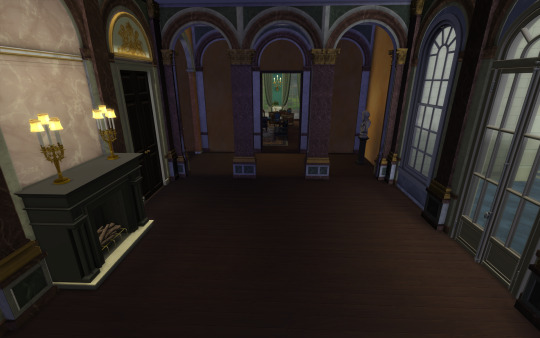
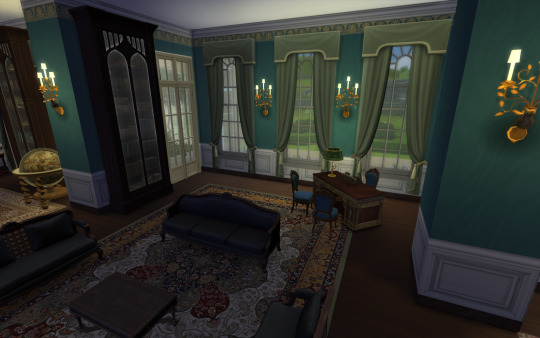
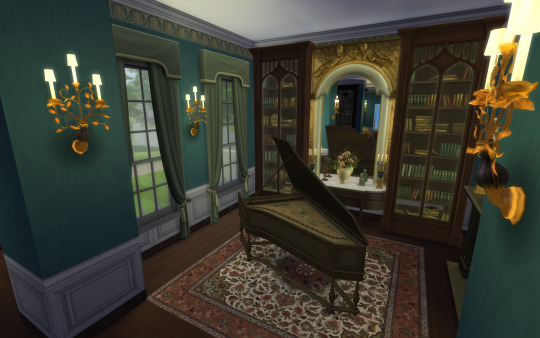
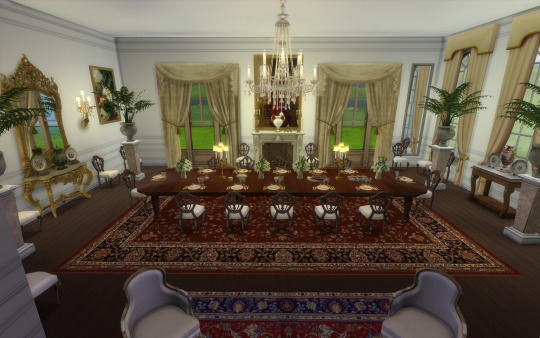
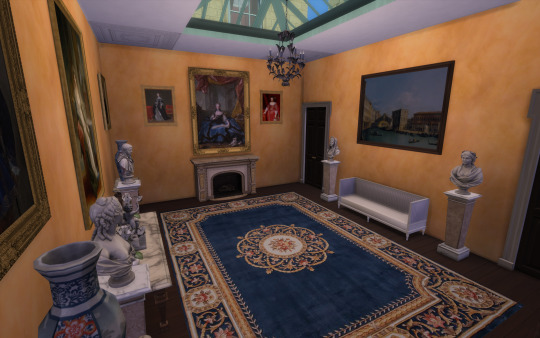

Prestwald Hall
Hi guys!!
I'm sharing Prestwald Hall . This is the 9th building for my English Manors Collection, and I will add many more!
House History: Prestwold Hall was, for many years, the seat of the Packe family. Before that time, it was the home of the Skipwith family. After the death of Major Robert Christopher Packe (born c.1783) - one time Aide-de-camp to King George III - who was killed during the Battle of Waterloo, the hall passed to his nephew George Hussey Packe who held the hall and estate until his death in 1874.
The Hall was remodelled by architect William Burn in 1842–1844, incorporating the fabric of a mid-18th-century H-plan house. It was Grade I listed in 1951.
One of the finest rooms inside the house is the Entrance Hall with its richly coloured marbled plaster work in the Italian style. The painted ceiling was inspired by Raphael’s Vatican grotesques and incorporates miniature landscapes, showing the house before and after its remodelling between 1842 and 1844. Below the ceiling, wreathing the room, are small medallion busts of the poets from Chaucer to Scott, positioned in the spandrels and are likely inspired by Alberti's external arcade at the Tempio Malatestiano in Rimini. An arcade opens on to a vaulted corridor leading to a top lit inner hall: these spaces also marbled. Off the corridor, the cantilevered stone staircase survives from the eighteenth century house, and was given its bracketed brass balusters by William Wilkins (1751-1815) in 1805.
The Dining Room, added by Wilkins in 1805, was incorporated into the remodelling undertaken by the Scottish architect William Burn in 1842. The room is overlooked by two dramatic full length portraits of Sir Edward Hussey Packe, KBE (1878 – 1946) and the Hon. Lady Mary Sydney Packe (née Colebrooke, 1890 – 1973) by the painter Glyn Philpot RA (1844 – 1947). The portrait of Lady Packe, painted in 1911, was described by the art historian Robin Gibson OBE as an ‘amazing feat of virtuosity’. Its elongated elegance and introspective characterisation is totally without the fashion-plate vulgarity of much Edwardian portraiture. Other portraits hang in this room of the Packe family including a painting of Sir Christopher Packe (1595 – 1682) who purchased the house in the 17th century painted by Cornelis Janssens van Ceulen (1593 –1661).
The library extends nearly the entire length of the house when the large doors that separate it from the drawing room are opened, connecting the two rooms. With clever use of constructional steel, William Burn was able to create these long adjoining rooms. The windows rise from floor level and open onto the garden which enhances the notion that Prestwold was designed in the style of an Italian classical villa. The doors and bookcases in library were made for George Hussey Packe (1846–1908) by Gillows of Lancaster and London in 1875.
A conservatory fills the recessed central bay at the front of the house, and projects out towards the garden. Behind the glass and elegant Doric pilasters, are well planted raised beds with a number of exotic plants and flowers
More history: https://en.wikipedia.org/wiki/Prestwold_Hall
Virtual tour: https://www.prestwold-hall.com/virtual-tour/

Night pics



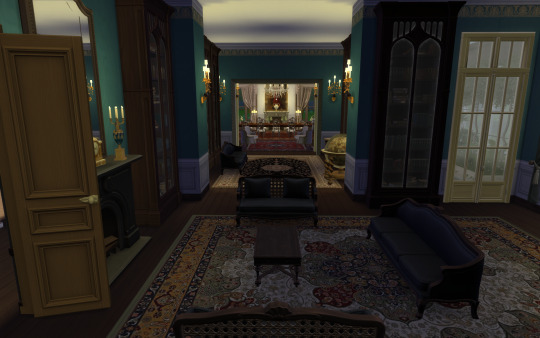
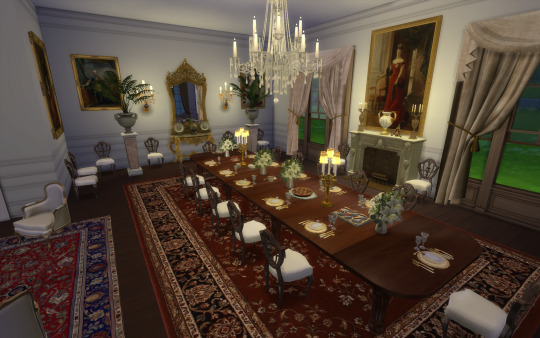
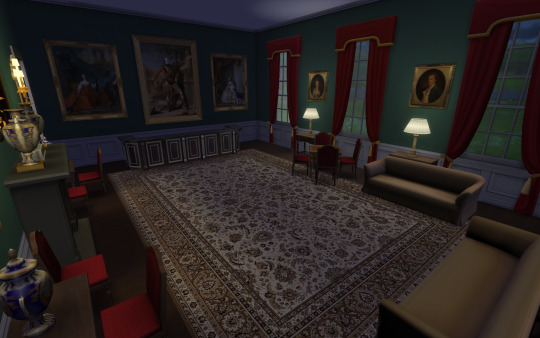
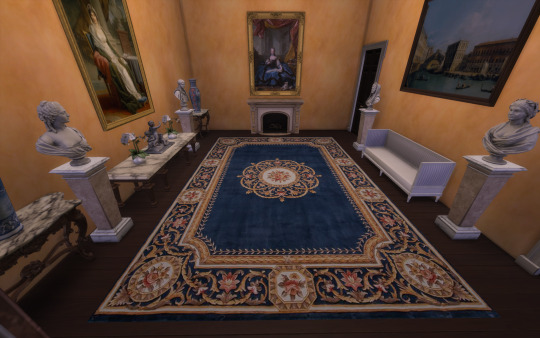
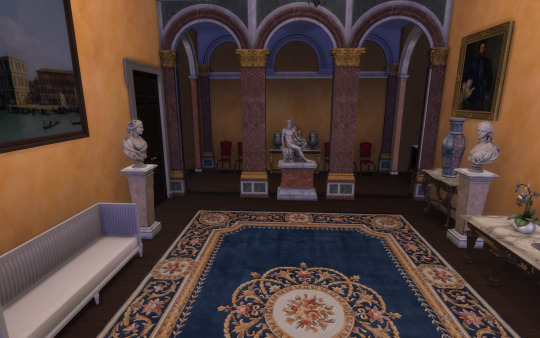
Floorplans




This house fits a 50x40 lot and features the following:
great hall
long Library
formal dinning room
family room
playroom
formal gallery
a winter garden
14 rooms for family/guests + 3 service rooms
several bathrooms
This time I decorated most of the rooms in the main floor for picture purposes, but as allways, you can make it your own!
The second and third floor (bedrooms) are not decorated, but finished.
Hope you like it.
You will need the usual CC I use:
all Felixandre cc
all The Jim,
SYB
Anachrosims
Regal Sims
King Falcon railing
The Golden Sanctuary
Cliffou
Dndr recolors
Harrie cc
Tuds
Lili's palace cc
Please enjoy, comment if you like it and share pictures with me if you use my creations!
Early Access: August 15
Download: https://www.patreon.com/posts/prestwald-hall-104505183
#sims 4 architecture#sims 4 build#sims4#sims 4 screenshots#sims4play#sims 4 historical#sims4building#sims4palace#sims 4 royalty#ts4 download#sims4frencharchitecture#ts4#ts4 gameplay#ts4 simblr#ts4 legacy#ts4cc#the sims community#the sims 4#sims 4
38 notes
·
View notes
Text
a brief list of people I talked to during my vacation, incomplete:
the woman who kindly escorted us to her favorite pubs in Dublin. I'd guess she was in her late fifties/early sixties, and she was very kind about squiring several jetlagged/semi-drunk tourists to her favorite bars. She talked about her daughter and her holidays and kindly left us to soak in the beer, atmosphere, and local music, before floating back to the hotel on a cushion of sleep deprivation and alcohol.
the tour guide who took us through Cork to Killarney, who was extremely chatty---but it was invaluable local color, in my opinion, since I think it's rare to find someone so willing to talk about their childhood with complete strangers. She told us about how her mother would send them out to pick blackberries for jam, the weekly washings, the annual Medicine Taking in the spring (it was horrible and completely useless, according to her), and how her father would load up their milk to head to the processing shed and collect town gossip there. Apparently, there was a Traveler family that used to park their wagons in her family's yard, and the family would share leftovers, help the Traveler's daughter to school in exchange; she remembers when the daughter died, and then there were no more visits.
the other tour guide, who was very polished and professional---he had lots to say about the extant education and healthcare systems, as much as history, and only teased me a little bit for mispronouncing "cairns." He ruefully admitted he hadn't understood Banshees of Inisherin, even when I mentioned it had inspired my trip to Inis Mor. (I was quietly in love with him.)
the staff at [redacted] in Galway, which is where I and my family hung out after our long days ended. I loved their bartenders specifically, the cheerful woman who kept (not so subtly, but amusingly) needling us to buy more, and joking with us; the uni student who wanted to know what "Notre Dame" was and told us she was studying education; the man with the thick Russian accent who went into detail about the Prigo/zhin crash and why it had occurred; the young man who talked about the bars in Dublin, and how he'd just returned from because he'd forgotten his ID at one of its best ones.
the fellow traveler, who I also sat with at that bar---he was only there to pick up his wife for a mini-vacation, but he was charming and I loved listening to him talk about Dublin, about what he remembered as the best spots, comparing notes with the bartender to see whether certain bars were still "cool" or if that was 10 years in the past.
the owner---as I later found out---of The Bar on Inish Mor, who is competent and capable as any manager I've ever had. When I first saw her she was pulling pints behind the bar; only after an hour or two of observation did one of the underlings mention that, oh no, she wasn't just a manager, she was the owner. But of course anyone quietly instructing staff to clear tables or wash dishes, making sure that food arrived on time, and exchanging charming banter with customers, has to be the owner. I don't know her name, but I admire her intensely.
(sidenote, the guy who wiped out on the biking path, who rose up laughing at himself, and his friends who gathered around him taking the absolute piss out of their mate even as they catalogued his injuries---I love all of them.)
the staff at the Little Museum of Dublin, one of whom asked if I was a history student (I'm not, but was charmed) and then talked about the creeping horror of bog bodies and the museum's planned expansion until they had other duties to attend to.
the curators at St. Auoden's, who talked to me about the function of the church, its graves, and also discovering headless bodies beside the churchyard.
that curator at Marsh's Library, who gamely entertained all my questions about Latinate titles and preserved skulls. I still need to know more about the Irish book of prophecy prohibited by the Vatican but benignly ignored by the Dublin clergy; I guess I'll email them directly.
the woman I helped across the street in Dublin. She had vertigo, and was not confident she could make it by herself. A lovely woman, with sere white hair and blue eyes, and she thanked me so profusely afterwards. I hope she's having a good day.
the kindly night manager of the hotel, who asked whether I was okay when I showed up at 3am in the hotel lobby. (My bus to the airport left at 4am.) He told me about his family and the rhythms of the job; I told him about Chicago/what I'd seen in Ireland so far.
Obviously there was a lot of notable history and peerless attractions, but there's something about the people you meet on vacation that's just....well, it's like lightning, in that it doesn't strike twice and it fills you with awe every time.
#people!!!#anyway I am going to go to bed now. everybody have a good night.#the lesser american roadtrip
107 notes
·
View notes
Text
The Notable Books in the Collection of Mabeuf's Library
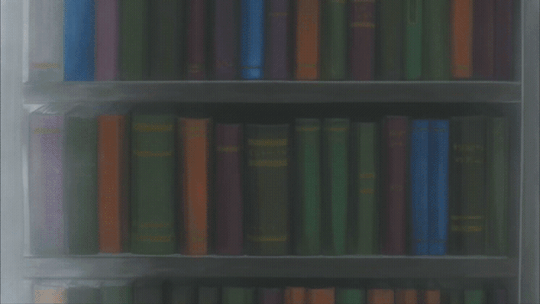
But he still retained his most precious books, many of which were of the greatest rarity, among others, Les Quadrins Historiques de la Bible, edition of 1560; La Concordance des Bibles, by Pierre de Besse; Les Marguerites de la Marguerite, of Jean de La Haye, with a dedication to the Queen of Navarre; the book de la Charge et Dignite de l'Ambassadeur, by the Sieur de Villiers Hotman; a Florilegium Rabbinicum of 1644; a Tibullus of 1567, with this magnificent inscription: Venetiis, in aedibus Manutianis; and lastly, a Diogenes Laertius, printed at Lyons in 1644, which contained the famous variant of the manuscript 411, thirteenth century, of the Vatican, and those of the two manuscripts of Venice, 393 and 394, consulted with such fruitful results by Henri Estienne, and all the passages in Doric dialect which are only found in the celebrated manuscript of the twelfth century belonging to the Naples Library. M. Mabeuf never had any fire in his chamber, and went to bed at sundown, in order not to consume any candles. It seemed as though he had no longer any neighbors: people avoided him when he went out; he perceived the fact. The wretchedness of a child interests a mother, the wretchedness of a young man interests a young girl, the wretchedness of an old man interests no one. It is, of all distresses, the coldest. Still, Father Mabeuf had not entirely lost his childlike serenity. His eyes acquired some vivacity when they rested on his books, and he smiled when he gazed at the Diogenes Laertius, which was a unique copy.
Before he had to live on selling his books, father Mabeuf had a variety of books and he had some with notable titles. And fortunately some of them could find on the web!

The first one, <Les Quadrins Historiques de la Bible, edition of 1560> was the easiest one to find but that existed only with the 2018's edition.
Could not find on any certain information about <La Concordance des Bibles> but instead I'll upload the google link.(Can get the information that I might miss.)
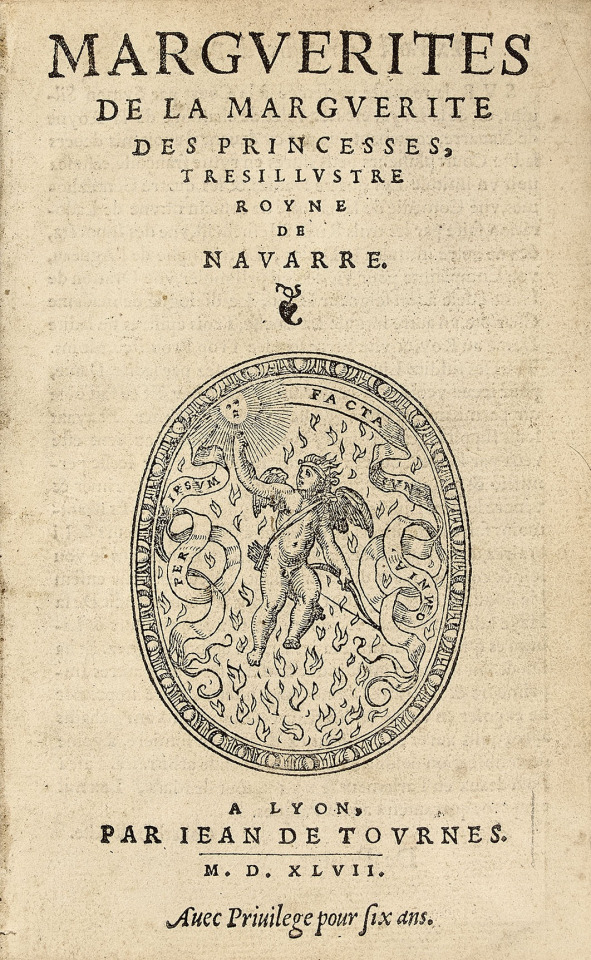
<Les Marguerites de la Marguerite> was the next easiest one to find and with the original copies. This is only a piece of the result.
No information about <Book de la Charge et Dignite de l'Ambassadeur> same as the <La Concordance des Bibles>.

Next is what probably Mabeuf liked most, <A Florilegium Rabbinicum of 1644>. It had many illustrations of plants and flowers, that probably steal this old man's heart.
Tibullus had actual books in many variants, but I couldn't find the one with the actual title in the Brick.

Finally the last volume of Mabeuf, <Diogenes Laertius>. I thought this is the rarest one, but fortunately it's preserved even in nowadays!
I wish I could analyze more about these books, but due to the limited background this is what I can do with my best.
#Les miserables#les mis#My Post#Mabeuf#The Old Bookist#And his Notable Collections#History#The Brick#Meta#Les Mis Letters
18 notes
·
View notes
Text
this is me being very brave and not correcting inaccuracies about the vatican library after seeing a post that mentions it, even though working with vatican manuscript collections and their digital surrogates is my literal job
(nb I don't work for the church in any sort of direct fashion, we're a medieval and early modern studies research center, please do not drag me through the streets, at least for that reason)
#like this is not to minimize the many crimes of the church#or indeed the accessibility issues of rare book and manuscript libraries#but it's not actually locked away and kept secret#it's all being digitized rn#large chunks of it have existed on microfilm and have been hosted in the US since the 1950s#like the wealth of the church is a separate issue but#the access issues for the libraries are not distinctly different from those of secular institutions#also the 'vatican secret archive' is not what people think it is#it's basically just documents related to the private business of popes#it's not called that anymore and it's not particularly secret
26 notes
·
View notes
Text
Apocryphia Bipedium- Ian Potter
[FIXED THE WONKY MOBILE EDITING. >.< IT LOOKED FINE ON DESKTOP]
[I am obsessed with this short trip so I had to bring it to Tumblr. Yes I did just copy and paste this page by page out of the pdf and formatted it. I think about it all the time. Anyway.
Apocrypha Bipedium takes place in the gap between Time of the Daleks and Neverland. Enjoy]
A Suggestive Correlation of The Cressida Manuscripts with other Anomalous Texts of the Pre-Animarian Era as proposed for Collective Consideration by Historiographic Speculator Anctloddoton.
In my selection and placement of the following extracts from the literature of the extinct worlds, I have attempted to draw suggestive parallels between some of the Problem Texts of the humanoid cultures. Obviously, the records of those times are now so fragmentary that any conclusions we draw from the surviving evidence must remain speculative. We cannot know what evidence we are missing, thus the linking of events posited by the presentation of these documents must remain a tentative hypothesis at best.
HS A From The Primary Cressida Document – Suppressed Texts of the Vatican Library, A Mysteria Press Original, 2973 CE.
The past is another country, the Doctor used to say. By which I suppose he meant it’s a nice place to visit but you wouldn’t want to live there, and you can have real problems with customs when you arrive.
I grew up in the future myself, which makes living in the past tricky at times. Liverpool was a great place to grow up if you were into the past though. It was full of it; the Campus Manor theme park, the castle, the Beatles Memorial Theatre, The Saint Francis of Fazakerley Museum, the Carl Jung Dream Tour, Post-Industrial Land and all those cathedrals, you were tripping over history everywhere. Mummy’s parents came from there too, so it was practically like we knew reallife olden days people.
It was much better than Liddell Towers where we lived in New London – most of the history near there seemed to be about some silly girl who’d let a professor of sums take photos of her and fell down a rabbit hole, or about those awful Daleks wiping out Southern England with mines and things. Much duller and hardly any variety in the rides at all.
Here in the actual olden days there’s not much past anywhere, just loads of future, and the rides are even less fun, all carts and donkeys and hardly any roads. We’re moving again, you see, dear diary. Even though the conquering Greeks don’t really seem to want to colonise any of Asia Minor themselves they don’t seem to want any Trojans settling back down anywhere round here either. They’ve occupied what’s left of the city, I suspect mainly so Menelaus can find all the expensive bits of Helen’s jewellery she seems to have mislaid, and seem keen we don’t hang about too nearby. Mymiddon Hoplites apologetically move us on now and again, clearly wondering when they can decently be allowed back home to start fighting amongst themselves again, and so we pack up and move. Some of their chaps are still feeling rather tetchy for no good reason apparently. Troilus says there’s a silly rumour going around that some terrible woman, probably a goddess, went around whipping up aggression amongst the Greeks a few years ago by magic, leaving marks on their necks that mean they can’t calm down!
It doesn’t make any sense to me. I think I might just be getting the cleaned up version of a soldier’s tale actually. I think that happens with me a lot. People treat me like a silly little girl sometimes, which isn’t really fair when I come from the future and know all sorts of things they don’t. I’m an adult now, even if not being born yet does make me about minus four thousand officially.
I don’t think Agamemnon’s Greeks really know what to do now to be honest, and after a decade’s anticipation I don’t think the trade routes or the princess they were sacking Troy to get are quite as good as they were hoping. I think they’re just hanging around stopping us settling down and looking for lost costume jewellery until they can think of something better to do. Some of the Ithacans are moaning it’ll be another decade before any of them get home at this rate. Bless them.
Running out of room, dear diary. Will write more when I have some new goats’ hides.
From Not Necessarily the Way I Do It! The True Confessions of a Ka Faraq Gatri not just written for the money when trapped on a primitive planet and needing cash to buy parts by ‘Snail’, Boxwood Books, 300 AGB.
Of course the hairy kangaroo had been at the mind rubbers and didn’t even realise the sword was there! How we laughed. Terrible namedropper, Zodin, but worth her weight in soufflé all the same
Naturally enough, mention of name-dropping reminds me of another anecdote, this one relating to dear old Bill Shakespeare, one of the finest writers and most atrocious spellers of any age. I’ve met him several times now and hope to again if I ever get off this pre-warp- engineering dustball. The last time was during that sticky business with poor Kitty Marlowe and those Psionovores from Neddy Kelley’s old scrying glass that I related in Chapter 9, but perhaps our most awkward misadventure together was the time I introduced him to some of his own characters, who included, as it happened, a dear, dear friend of mine.
From The Dairy of an Edwardian Adventuress by Charlotte Elspeth Bollard, Library of Kar-Charrat. The work, having suffered some worm damage in the Great 2107 AD Cock Up, is presented here in the Elgin decorruption.
Travelling with Wilf and the Doctor was a curious experienced already felt somewhat out of sorts with time, having discovered my very existence was making history split in two, but sharing a home with a boy from the 16th Century and a man who seemed to come from nowhere so much as his own imagination, merely heightened my feeling that I no longer belonged to any era.
We three fellow time travellers had so very little in common beyond having all read the plays the boy had not yet written that the small talk had been small indeed, and, after a few days of the Doctor failing to get Wilf home, the atmosphere had become a little tense.
Wilf, it further transpired, had difficulty reading anything written in more modern Anglish than his own, which meant there had been little of a literary nature to distract him during his sojourn with us once he had read and re-read the Doctor’s picture books about Frinchs, Sneetches, Ooblecks and Cats in Hams.
Thankfully, towards the end of Wilf’s stay with us the Doctor had discovered a futuristic version of Lido called Peter Pan Pop-O-Matic Frustration that we could enjoy playing together and those last long hibiscus-scented afternoons in his music room passed pleasantly enough, without young Wilf having to constantly relate the escapades of besocked foxes to us.
The Doctor always won our games, usually coming from behind implausibly late in the day, and nearly always using some devious subterfuge to gain victory. Indeed, it was observing the childlike joy on the Doctor’s face at his underhand triumphs on the Peter Pan Pop-O-Matic Frustration board that I first realised just how much of Peter there was in his nature. Naturally, we loved him enough to pretend not to notice his cheating (I sometimes think the whole universe did) and at times towards the end we three had so much fun that I almost forgot I was a paradox, unpicking creation like Penelope at her tapestry in the heroic age we had just left.
From The Pseudo-Shackspur – works attributed to William Shakespeare collated by Heinrich Von Berlitz and Leopold Kettlecamp, Ampersand and Ampersand, 85 AH.
This passage from The Noble Troyan Woman of Troy – fragmentary foul papers of a naive work once attributed to the very young Shackspur, is worth quoting in full.
Act 2, Scene 1. A room within the box. Enter Mistress Charley, Doctor Shallow and Young Will.
Doct. Here at last! Our journey finally through. In fifteen hundred and seventy two. Young Will, regard the ceiling viewing dome – Stratford on Avon, the Hathaway home.
Will. But sir, on those bare hills, no swarths do roll. And no houses nestle ’twixt those craggy knolls – The sun burns with a fierce un-English light And that beach there is not a Warwick sight! That’s not Stratford displayed above us
Char. – Lest the Avon’s turn’d to sea, ’Od love us!
Many scholars have disputed the authenticity of this piece of alleged Shackspurian juvenilia, pointing out, fairly, that it does appear to be the only one of his extant works that the Bard biroed in a twentieth-century school jotter otherwise festooned in swirly ink blots and doodled hexagons. However, if Shackspur did travel in Time, as several scholars suggest, this objection falls away. A more compelling argument for its inauthenticity is the verse style, experimenting uniquely within the Shackspurian canon with strict iambic pentameter composed entirely in rhyming couplets. Whilst dreadful, it is nothing like as appalling as that in Shackspur’s earliest known adult writing
***
From Tales from the Matrix – True Stories from TARDIS Logs Retold for Time Tots by Loom Auntie Flavia, Panopticon Press, 6833.8 Rassilon Era. Part of the Wigner Heisenberg Collection, The Mobile Library, Talking Books Section. Location currently uncertain.
The Doctor flicked the temporal stabiliser off and pulled down the transitional element control rod taking him out of the Vortex. Quite the wrong way to actualise and quadro-anchor even a Type 40 Time Capsule, isn’t it? Exiting the interstitial continuum at the perihelion of a temporal ellipse can cause serious buffering in your harmonic wave packet transference and sever your main fluid links, can’t it?
‘Here we are, Stratford on Avon, 1572!’ announced the Doctor proudly and wrongly. If he’d ever bothered to use his Absolute Tesseractulator to pinpoint his dimensional locations he wouldn’t have made these kind of mistakes, of course, but the Tesseractulator had never come out of its box, had it?
Charlotte Pollard, the Doctor’s friend, came over to him and flicked on the ceiling scanner.
A friend’s an Earth thing. It’s a bit like having a colleague or fellow student you co-operate with, but without any exams or project targets at the end to make the co-operation meaningful. There was a fashion for having them on Gallifrey at one time, ask some of your older cousins about it, they might remember.
Charlotte squinted at the view outside. It didn’t look like the Stratford she’d visited, with neither alien enslavers nor half timbered tea shops anywhere in sight. ‘Are you sure?’ she asked.
‘Positive. Ish,’ replied the Doctor. William Shaxsberd, a young man they’d promised to drop off in 1572, put down his coloured crayons and came to join them.
‘It does not look much as it once did, Doctor,’ said William, looking at the ceiling and cricking his neck.
The Doctor followed suit. The dustbowl outside was certainly not Warwickshire in any era he’d visited, ‘No. Indeed not,’ he admitted. ‘I think the rift in the Vortex is introducing a random element into my calculations.’
Do you remember the rift in the Vortex, from last time? That’s right, the Doctor made that too! It was due to the paradoxical interaction of two paravertical chronostreams further complicated by three retro- temporal augmented causal feedback loops, wasn’t it?
‘Another random element?’ asked Charlotte, ‘More random than the way you play “eeny meeny miney mo” with the buttons?’
‘Ha, Charley,’ said the Doctor. ‘Tres amusent.’
Charlotte turned to William to explain, ‘That’s French, Will, for “I’ve been banged to rights, Miss Pollard”,’ she said.
‘I somehow knew,’ William replied.
‘Really?’ asked Charlotte. ‘How?’
‘It’s a Time Lord gift, Charley,’ said the Doctor, ‘and yes it would be awfully de trop to ask how it works.’ Or at least that’s whatCharlotte thought he said. William heard something quite different of course.
Well, let’s get out there then,’ said the Doctor, opening the doorswithout taking any proper readings.
‘Er, why?’ asked Charlotte.
‘Because until we know how far out the rift has shunted us in spaceand time we won’t know how to get to Stratford, 15 diddlydiddly...’explained the Doctor, waving his hand vaguely as he searched hismemory for the end of the four digit number he’d lost interest in.
‘Seventy-two,’ prompted William.
‘The very same.’ The Doctor beamed, ruffling the young man’s hair in a way that, thanks to the TARDIS telepathic circuits alone, seemed endearing rather than insufferable and over familiar.
William and the Doctor headed for the doors. Charlotte was troubled though.
‘Won’t my temporal instability cause untold problems to wherever we are?’ she asked, quite sensibly, all things considered.
‘Oh, very probably, I expect,’ replied the Doctor airily, ‘but if you spent your whole life worrying about the consequences of your actions you’d never get anything done and the consequences of that would be unthinkable, wouldn’t they? Faint heart never bowled a maiden over,you know.’
Charlotte scowled. ‘Mind,’ added the Doctor as he stepped out of the control room, ‘neither did Katie “the Beast” Davies, if I remember my22nd-century Wisden correctly.’
That was an allusion to the Earth game Cricket, wasn’t it? It was the Earth’s planetary sport, despite the fact that humans were the worst players of it in the galaxy if you remember.‘
Doctor, I find your words confusing,’ said William as he followed him out.‘It’s a Time Lord gift, Will,’ Charlotte whispered. ’You’ll get used to it.’
* * *
From The Primary Cressida document
New hides! This keeping a journal business is awfully tricky when you’ve no paper around, but before mummy died, she did make me promise I’d write one when I eventually settled down. It’s a family tradition that’s been handed down for generations apparently, not that I ever saw mummy’s.
Anyhow, Troilus is still very eager to settle soon, but where? I’ve ruled out going east to the Holy Land because from what I remember from history and my travels we’ll get no peace there and the rest of the Med and Adriatic has already been bagsied. Troilus reckons Aeneas will have already have set up somewhere by now and we should have gone off on his boat when we had the chance. I just nod, and try to explain wave particle duality to the little ones.
I have a vague feeling I learned something about Aeneas from the UK-201’s didactomat box way back in the future. I think he ended up with Dido in Carthage for a bit, which confuses me because I thought Dido’s music was Late Classical, which must be after this period, surely. I’m sketchy on the details to be honest. I only remember it was Dido and not Sister Bliss because the planet we crashed into on the way to Astra was named after her.
Funny thinking about Dido, that was the place I’ve called home longest in recent years. I’ve been a nomad a while really – split between London and Liverpool as a girl, never knowing whether to talk posh and southern or not, emigrating to off-Earth with daddy, hopping about through Time with the Doctor, and now traipsing around Turkey with Troilus and his mates before its even called that or has any tourist facilities to speak of. I think I must have ‘space travel in my blood’ as one of those Baroque composers put it!
I’ve been wondering when I should discover electricity and plumbing a bit recently, these fleeces don’t clean themselves like proper clothes, so the sooner we can invent the twin tub the better. Are we before or after that Monk who invented things too early here, I wonder? I don’t want to mess things up like he did, but I’m shocking on dates. I just paid attention to the stories in the history books really, not the order they happened in. If I’d known the way round history went was going to be important I would have had the machine teach me it. Of course, as a child you never expect all that history around you is going to run away into the future like it has, do you? I’ve decided I’ll probably start with a steam engine and see if that messes up my memory of the future. The way I see it, it’ll be impossible for me to invent anything that’ll stop me being born so I can’t do too much harm.
I casually suggested making things out of iron the other day, which I know is a big step forward but everyone just laughed. Too brittle and hard to work compared to bronze or tin, they said. I suppose they’re right. You have to do something to it to make it strong, I remember that. I just don’t remember what that something is. For all I know my quad physics equations and could still compose a cogent analygraphfor the fall of the Mallatratt Protectorate, I’m a bit rusty on a few of the basics. Going to take us years to get garlic bread and sound radio at this rate.
Of course, I had a bit of training for life without the mod cons on Dido, so I can cope, but what makes things really fiddly at the moment is that my future’s past is catching up with my present, which is complicated enough to write down, let alone experience.
We’ve just bumped into the Doctor as a young man, and I’m sure it’s really bad form for me to let on I recognise him when as far as he’s concerned he’s not met me yet.
From Not Necessarily the Way I Do It!
My plan was pretty much the usual one, to go out and see if we could find out the year and our whereabouts in a way that wouldn’t arouse any suspicions, and then hang around until nightfall to get a better fix from the position of the stars. It may sound dull but I’ve found if I do that I usually find something or other to get embroiled in before sunset.
We stepped circumspectly out of the Ship and set off in search of the nearest habitation, ready as ever to improvise any number of cover stories to explain our presence and strange garb. As luck would have it we soon ran into one of the locals, and were able to subtly winkle out the info we needed on route to his encampment.
From The Dairy of an Edwardian Adventuress
People say you should never look back of course, advice we’ve been ignoring since Orpheus and EuroDisney, but I can’t help thinking that if the Doctor hadn’t landed us in the aftermath of the Trajan War a lot of that beastly business with the Time Lords might have been avoided later.
As usual the Doctor rejoiced in dropping straight into the middle of things without a moment’s forethought. Impossible, exasperating man,I tried to protest but somehow he just brushed my complaints away with a smiled shouldn’t have let him, but he did have such a lovely smile.
* * *
From The Pseudo-Shackspur
The Noble Troyan Woman of Troy
Act 3, Scene 2. Another part of the hillside. Enter Mistress Charley, Doctor Shallow and Young Will.
Doct. Yoohoo! Mister Goatboy, excuse me please, Could you tell me what time and place is this? Char. Discreet as ever.
Enter a Goatherd.
Doct. Yes, but awfully brave. Young man, there is information we crave. What land is this and what year are we in? We’ve lost track of both in our travelling.
Char. Oh I give up, you’re so inconsistent.
Doct. Just smile prettily, act like an assistant.
Char. But I never know what trick you’ll pull next!
Doct. Just grit your teeth, smile and stick out your chest; Magic’s best tricks work by misdirection.
Char. So I’m just here to stir his –
Will. Affection?
Doct. Quite so Will, a pretty face inspires trust. True, I’m afraid, if not awfully just. This chap will tell us the time and the place And Presto well head straight back into Space!
Goat. Eleven eight three BC is the year This is Hisarlik in Anatolia. I expect you’re traders from Phoenicia To be garbed and garbling here so queer. You’ve been ship wreck’d and concuss’d I’ll be bound. Which’ll be why you have no goods around. We must offer you shelter at the least Pop back home with me and well have a feast.
Char. How can he know he lives before Our Lord?
Doct. It’s just a translation device that’s flaw’d. It’s an awfully clever mechanism But it causes the odd anachronism. Kind goatherd, we would love to share a meal And watch the evening stars above us wheel. For by such means we will precisely know Our station now and where we next must go. Exeunt Omnes.
From Tales from the Matrix
‘Do we really need to do this?’ asked Charlotte as the band trudged wearily after the herdsman in their impractical shoes, ‘Surely the date and location he’s given you is enough?’
‘Perhaps,’ the Doctor replied, ‘but studying the stars will allow me to be more accurate. Besides, I’m famished. We haven’t eaten for minus three thousand years, bear in mind.’
So the Doctor and his companions blithely headed off into further temporal confusion, unaware that the goatherd had seen the TARDIS arrive and knew full well who the Doctor was already.
There’s a lesson there for anyone who thinks it’s clever to keep their TARDIS in one form, don’t you think? The Ionic Column factory preset might look nice, for example, but when using it means every Grun, Za and Caius in the Cosmos knows who you are immediately, it rather defeats the point of a chameleon circuit.
From The Primary Cressida document
One of our herdsmen saw the TARDIS arrive in the next valley this afternoon and instantly recognised it as the mobile temple that had prefigured the city’s fall, and the Doctor as a younger version of the old man from my tales.
He sent his mate back to tell us so we all had time to prepare ourselves and could all pretend we believed the Doctor’s implausible story about being a trader from Phoenicia when he turned up an hour or so later.
It’s definitely him, probably about 40 years before we met. He dresses similarly, his hair is curlier and darker and his face looks a bit different, but the years are never kind, are they? Amazingly, he’s almost as vague as a young man as he was when old, if not quite so ummy and erry. I’d always assumed that was because he was getting on a bit.
Thankfully, no one here’s too thrown by the idea of time travellers after me relating all my adventures to them, though one of the boys did ask me why the Doctor didn’t walk and talk backwards when his past was in the future. I was very clear why not when I started explaining it, but I must admit I got a bit confused as I went along. He hasn’t recognised me of course, dear diary, and we’ve invited him and his friends to have tea tonight.
From Not Necessarily the Way I Do It!
Well, imagine my embarrassment when we arrived at the fellow’s encampment and who was in charge but my old friend Vicki (now calling herself Cressida of course) and her new husband Troilus, who I’d never actually met, due to quite heavy escaping commitments around the time they got together.
I realised with a start that young Bill Shakespeare was due to write a play about this couple in a few years, and that unless I was careful thismeeting would almost certainly be what inspired it, thus complicating Bill’s already tortuous history further and bringing yet another new paradox to mine. I’d only let Vicki go away with Troilus at Troy’s fall because once I heard she was calling herself Cressida I’d assumed it was predestined (well, I was young, I believed in that kind of thing), I knew there was a play about the couple by Shakespeare and thought I was helping history take its course by hitching them up. Now, if I’d only done that because my future actions would one day bring that play about, I’d accidentally made a big chunk of my past dependent on my future, which, as you know, isn’t really the accepted way of going about things.
I reasoned it was vital for the tidiness of the time line that I kept Bill from learning the background of Troilus and Cressida in any detail, ideally forgetting as much of their present as he could too.
To complicate matters further, Vicki had actually seen Bill as an adult on my time telly, the Time Space Visualiser. She was never the most historically careful of girls, and I feared that if she found out who he was, she’d probably tell him all about his future at the court of Elizabeth and getting the commission to write The Merry Wives of Windsor and the inspiration for Hamlet on the same day and how he’d sprained his wrist in his rush to write both.
All it might take, I thought, would be one slip from any one of us, accidentally mentioning the words TARDIS or Zeus Plug over dessert, say, and causality would be tangled up like President Pandak’s kittens in twine, quicker than you could explain what you pop in a Ganymede socket.
Luckily, it seemed Vicki hadn’t spotted how anachronistic our garb was and hadn’t realised I was her old friend, seeming to completely swallow my inventive tales of sea faring, despite Charley’s rather fanciful insertions about hook-handed pirates.
I had, of course, underestimated her, as a quick and entirely accidental glance at her diary before dinner proved. Not knowing I could regenerate, she had taken me for my young self in my first form and thought she was protecting me from foreknowledge!
This, of course, suited my purpose. All I reckoned I had to do now to save Time from chewing itself to bits was keep Will busy and make sure Vicki didn’t relate her history to any of us over dinner.
Oh what tangled webs we weave, when tidy temporal strands we try to leave.
From The Dairy of an Edwardian Adventuress
Mr and Mrs Troilus seemed a sweet couple, he a lanky chap with a curly beard and a well-meaning expression and she a rather enthusiastic young thing with big eyes, yet the Doctor had become rather shifty from the moment we met them. I knew he was preoccupied by something, but I had, at that time, no idea what. After some fun, improvising tales of derring-do on the high seas to prove our credentials as traders, he took me to one side and explained that I had to get Wilf as squiffy as possible at the feast that night for reasons it was simpler at that moment not to explain. He said history depended on me getting the boy so drunk he could neither speak nor remember his behaviour the next morning. I’m normally quite good at that kind of thing, it was hardly my fault the Bawd was a functioning alcoholic at the age of eight.
From The Pseudo-Shackspur
The Noble Troyan Woman of Troy
Act 4, Scene 1. An encampment in the mountains. Enter Mistress Charley, Doctor Shallow, Young Will, a goatherd, Troilus, Cressida, divers villagers and guards severally.
Doct. Hello. (Aside) Her! ’Tis Vicki, I should have guess’d. I never with good geography was bless’d Hisarlik is the modern name for Troy. Quite a temporal tangle, boy oh boy! (To Cress.) Ha ha, my hearties! We here are sailors three. (Aside) I can but hope she does not see ‘tis me.
Cress. (Aside) Deceit upon deception! Can this be The Doctor who I first took it to be? Is this him when young as I assumed? Or must deeper deceit be presumed? I’ll play along until the truth I know. (To Doct.) Good mariners, welcome and hello.
Will. (To Char.) What’s this strange accented charade about?
Char. (To Will) Who knows, we’ll be, I bet, last to find out.
From Tales from the Matrix
Yes Time Tots, exactly! The first thing any of us would have done would have been to get out of there quickly before we compromised the causal nexus. Staying for tea and imbibing too much ethanol, which you’ll recall the Doctor had a particular weakness for on his mother’s side, doesn’t strike any of us as sensible!
From The Secondary Cressida document (a transcribed fragment allegedly found at a Church of Rome jumble sale) – Even More Suppressed Texts of the Vatican Library, A Hatper-Mysteria- Ellerycorp Press Original, 2977 CE
My ruse worked, the robot’s read my carefully exposed diary and thinks I suspect nothing! He’s so obviously not really the Doctor it’s not true, but he doesn’t know I know that yet, so we have the advantage. He’s definitely a Dalek robot double like that other one they sent after us.
They’ve probably made him the young Doctor this time to make it less obvious. He does look a bit like he could be him sometimes if you’re not paying attention, but if you look closely his face is all wrong and his voice goes a bit funny sometimes like that other robot’s did, almost doing my accent at times! I think he’s probably feeding on my jumbled memories or something.
We’ll overpower him and his companions at dinner tonight and destroy them, they won’t expect me to know how to deactivate them.
From Not Necessarily the Way I Do It!
I’ve always been keen on wine, particularly the heavier oaky reds, though I find there is a rather tiresome tendency for them to be drugged by villainous blackguards sometimes, rather impairing the subtleties of the flavour, but wine in the Homeric era was quite a different proposition. What can I tell you about it except that it tasted awful but did the job?
It wasn’t the heavily resinated stuff the Greeks later went in for, thankfully, nor indeed that watered-down muck the ancient Romans used to dish out at parties, but I think it’s telling that the most flattering thing Homer had to say about it in the whole of The Iliad was how like the sea it was in hue. When you bear in mind he was blind, you can tell he’d had to ask around a bit to find anyone with something positive to say about it.
The food wasn’t much better either. It can be terribly hard eating out when you travel like I do. These days at home, I generally try to eat only things that don’t have a central nervous system, or that I’ve knocked up in the food machine, but sometimes, when you’re a guest, qualms like that have to go out of the window, particularly on worlds ruled by intelligent plants, where you’re best advised not to ask for a celery stick and to just stick your toes in damp soil like everyone else at the table.
Even then I try to stick to my principles and not eat anything with a sense of self, parliamentary democracy or sultanas in it.
This dinner was a particularly awkward affair; Charley acting like a slightly sloshed pirate queen, Vicki acting like she didn’t know me, Bill acting up, singing lewd madrigals that officially weren’t due for invention yet in his rather reedy girlish voice, and all the while me worrying about causality falling apart around me rather too much to fully enjoy the dolmades.
Suddenly, half way through the proceedings, the impossible happened: it took a turn for the worse. Vicki shouted out ‘Now!’, and lunged at my chest and started tearing at my waistcoat.
From The Dairy of an Edwardian Adventuress
My recollections of the ensuing events are somewhat hazy; I had been struggling to match young Wilt measure for measure, you might say, when I saw the Doctor being attacked. I launched myself at his assailant and missed, I’m told, briefly losing my dignity and consciousness in the process.
A shocking melee ensued by all accounts, with Trajans tearing at our clothes with cutlery and all the usual business with tables being turned and the like breaking out; I’m only glad I can’t remember the full details, because what little I do makes me blush quite enough.
It’s quite possible I told someone I loved them, and was sick later too. I’ve never been brave enough to ask. The next thing I remember clearly was being in the main tent with the Doctor explaining a lot and me apologising a bit, just in case.
From The Pseudo-Shackspur
The Noble Troyan Woman of Troy
Act 5, Scene 2. At dinner beneath the stars.
Cress. Take that, false Doctor! But where are your wires? In sparks and puffs of smoke you should expire. Could it be that you are the Doctor true?
Char. Get your claws off him, he’s mine, you wild shrew!
Will. Oh, Pillicock sat on pillicock
Char. Will you stop that terrible singing, Will? The Doctor and I are under attack From this Troyan host, while you’re supping sack. Join in the scrap and cease your carousel Lewd songs, anyhow, douse all arousal.
Doct. Vicki, Will, Charley, all, put down those knives! You’re all making the mistakes of your lives.
Cress. Vicki, you say? You should not know that yet. If you’re the young Doctor, we’ve not yet met.
Doct. Vicki, the reason that I know your name Is that inwardly I am still the same Man who left you at Troy some years ago, I can change my looks, if you didn’t know. Char. Doctor, do you mean that you know this wench?
Doct. We travelled together many years hence. I think it’s time I explain’d the full truth Of why I’ve deceived you all, forsooth.
Will. If she’s an old friend then tell me why You did keep that fact from Charley and I?
Doct. This is an old friend, Will, but, what is worse, She features, in decasyllabic verse, In a drama that you shall one day pen That means I shall leave her with this Troyan, If you only write it because you’re here Chronological conundra appear. Effects and causes whirl and spin about, Go through the wringer and turn inside out. The egg that hatches out your chicken Does in that self same chicken thicken.
From Tales from the Matrix
Then in direct contravention of fifteen universal laws of Time and two local statutes, the Doctor sat down and explained everything that had happened, and, in explaining it, he brought all the things he was worried about happening that hadn’t into the open, didn’t he?
Of course, it turned out that some of the things he was worried about were of no concern at all, but as a result of relating them he brought worse problems about.
I expect most of you have read stories about the Doctor in other books, and I expect some of you think he’s quite clever, even though he breaks a lot of rules, don’t you? Well, you’re right! In a crisis, he’s just the kind of person you need around, he can come up with ideas almost no one else could. The only problem is, when you’re not having a crisis, he’s just the kind of person to cause one.
From The Primary Cressida document
How embarrassing. It turns out the Doctor was the Doctor after all, only older and with a new face for some strange reason. The girl who drinks too much is his latest companion and the little boy with the dirty songs and the voice like a girl is William Shakespeare! Nice enough lad, no wonder he ends up in the theatre with that voice though, perfect for all those drag roles they gave boys. We had a lovely chat about Dido and Aeneas and told each other about our scrapes with the Daleks, and I let slip the odd thing I knew about his future.
He’s told me we should go and settle in England. Apparently there’s an old book he’s read by a chap called Geoffrey that says relatives of Aeneas were the first Britons I think it’s a super idea, ’ I know Troilus will like it in England, and I think we’ve persuaded the Doctor too! Just think! could be one of my own ancestors passing on my secret diaries for years and years, a bit like mummy’s family did! How smashing would that be?
From Not Necessarily the Way I Do It!
Of course I decided in the end that honesty would be the best policy and that as long as everyone knew the full facts, and swore not to be influenced by them, we could probably darn the hole in causality in such a way that it wouldn’t show. I sat everyone down in the central tent and explained. Well, what a Charlie I looked!
*** From The Dairy of an Edwardian Adventuress
Ridiculously, the Doctor had been worried about Wilf getting inspiration for the play Troilus and Cressida from meeting the real Troilus and Cressida! I protested that Wilf had already read his own plays in the future anyhow, but the Doctor countered that they’d have been corrupted playing texts and in a court of law it would be hard to prove that was down to him, whereas if Will had got any of the plot or characterisation directly through his adventures with us that was a bit more serious.
That was when Will started laughing.
From The Pseudo-Shackspur
The Noble Troyan Woman of Tray Act 5, Scene 4. A tent in the camp.
Will. But Doctor, I did not invent the tale Of Troilus and Cressida’s love that fail’d. Why, Geoffrey Chaucer told it years ago! I cannot believe that you did not know. Have you read even half of what you claim Or do you just like dropping well-known names? Cressida’s tale is part of tradition Not the result of my precognition Of future perfect past present events, If you will forgive me my mangled tense, And my quondumque futures version Should have put you off this girl’s desertion.
Char. You should have read your Brodie’s Notes on Will. The phantom threat you feared from his quill Was nothing but an insubstantial shade, And there’s a real spectre here I’m afraid. I’m half a ghost of Christmas yet to come, Remember, I’ve made history come undone. You’ve got paradoxes enough to be Getting on with, as far as I can see, So why do you search for new ones instead That only exist inside of your head?
Doct. If I had known the work of me laddo Would I have found menace in my shadow? I here resolve to watch much less TV And be the reader I do claim to be. For half my erudite orations Come straight from books of quotations.
From Tales from the Matrix
‘What was Helen of Troy actually like then?’ asked William Shaxberd as he helped himself to more wine.
‘Is,’ corrected the Doctor, prissily.
‘She’s a good egg by all accounts,’ said Vicki, politely not mentioning the fact she thought her looks had gone, ‘and Menelaus was happy enough to have her back, even after all the bother, so she must be quite nice when you get to know her, I suppose.’
‘Well, she would have to be a good egg really,’ said William, ‘Her father was a swan supposedly.’ Like most young human men of his generation, he knew the salacious bits of Greek Mythology surprisingly well.
‘Half human on his mother’s side?’ smiled the Doctor, thinking himself clever. ‘Aren’t we all?’
‘No, just men,’ said Charlotte through a falafel.
‘She has two birthdays they say, one when the egg came out of her mother and another when it hatched,’ Troilus revealed, leaning forward over the table and whispering in that conspiratorial manner people sometimes do when divulging well known but dubious trivia.
‘It would have been an easy birth if she was born an egg,’ said Vicki ruefully, one hand on her stomach.
‘An easy lay, you mean,’ William corrected.
‘So Paris said –’Troilus began, his eyes a twinkle.
He was shouted down by his wife seconds later, barrack room tale untold, and one of those awkward silences ensued that dinner party guests in all cultures and times know only too well.
‘Have you actually read Troilus and Cressida, Doctor?’ asked Charlotte a little later.
‘You ask me, who had a hand in some of Shakespeare’s finest work – who put the mixed metaphor in the “To be or not to be” soliloquy, who hired the bear for The Winter’s Tale, and who really shouldn’t have passed on the story of A Midsummer’s Night Dream, if I’ve read Troilus and Cressida?’ replied the Doctor, rather over-egging it in that way he usually did when he was on the defensive.
‘Yes!’ they cried as one.
‘Well, no,’ admitted the Doctor. ‘It’s supposed to be one of the better ones, and well, you know, I’ve been busy. I’ve still not managed to tune the Time Space Visualiser in to catch all of The Golden Girls and I’ve been trying for decades.’
‘She doesn’t end up with Troilus in it, she ends up with Diomede, andit’s set during the war not after it!’ said Charlotte patiently.
‘Diomede! That was Steven!’ Vicki laughed.The Doctor looked confused. ‘Vicki and Steven were just friends,weren’t you? Just the odd haircut and getting locked up together, Ithought.’
‘Yes, that’s right, how many times do we have to go through that?’Vicki explained, giving a petulant Troilus a peck on the cheek.
‘Well the legend must have got a bit confused by the time it gotwritten down I think Chaucer got it from a foreign book,’ said William,draining his goblet.
The Doctor beamed, thinking he’d got away with his tinkering again.‘So Troilus and Cressida weren’t predestined after all!’ he said
‘Well, only because of your lack of reading,’ snorted Charlotte.
‘Oh that is a relief,’ said the Doctor taking the wine jug from William and helping himself without asking.
‘Now what about this business of giving us charts to help us reach this Britain young Will spoke of?’ asked Troilus, passing the Doctor a goat’s cheese nibble.
‘I really shouldn’t,’ explained the Doctor. ‘If you go there, on the basis of the frankly dubious history of Geoffrey of Monmouth then Vicki is in danger of becoming one of her own descendants, which is at least as badas the things I’ve been trying to prevent all day.’
‘Oh go on Doctor, please!’ begged Vicki. ‘We could mine tin in Cornwall and I’d promise not to invent anything I shouldn’t as long as I lived, not even roller skates!’
‘I don’t think I should. I’ve made enough of a mess looking after young Charley here, the repercussions of me sending you to Britain because the unborn Shakespeare suggested it could be horrendous,’ said the Doctor, finally being responsible for once in his lives.
‘Oh go on Doctor, I’m unborn too, remember, so that shouldn’t matte rmuch,’ said Vicki.
‘And I’m only half here,’ said Charlotte grimly ‘Why stop messing about now? You should have stayed at home watching these Golden Girls of yours if you weren’t prepared to get involved in real people’s lives. They’re messy and not always in the order you’d like and sometimes too short, and they’re not always better for having you in them, but you either face that or hide away somewhere, don’t you?
’The Doctor kissed her.
‘What was that for?’ asked Charlotte.
‘To shut you up,’ he said. He tapped Vicki on the nose and smiled,’Come on, let’s carry on the party, and in the morning, when rosy-fingered Dawn has done her bit, we’ll sort out a good map of Europe for the Trojans and get them started on their boats. Any consequences which haven’t happened yet we can worry about later!’
Some of you will be shocked at just how naughty the Doctor was in this story: jeopardising the stability of all those will-have-might-have-been futures out there depending on him by interweaving all those strands of destiny connected to the Dalek race and all on the basis of a whim.
The Doctor already knew Dalek causality was partially snagged in a loop in Time and his friend was the focus of a temporal anomaly, but of course he had spent a jolly long time in the Vortex, hadn’t he? That meant his causal connections to events future, past and maybe- somehow were a great deal more jumbled up than most people’s and he was quite good at judging just how likely to snaggle the Web of Time his whims might be.
Or so he thought.
The Doctor believed in two very wrong things you see; firstly, in something he called personal morality that he thought was more important than doing the things simply everyone knows are right, and secondly, that he was cleverer than everyone else and could always sort things out.
He deserved what happened to him next, didn’t he?
Document from the Braxiatel Collection Shakespearean Ephemera wing, a note found in the effects of William Shakespeare by literary assessor Porlock. It is not believed to be in Shakespeare’s hand though it bears some graphological similarities to the disputed Scarlioni Hamlet manuscript.
List of things not to mention
The Daleks,
That you’ve met me before when we meet next (because you didn’t mention it last time, you know),
That you’ve read half your plays already
That I wrote all the good bits in Hamlet, [‘good bits’ later amended to ‘rubbish bits’ in a different hand]
The idea of cigars (until Raleigh gets back from abroad),
That cigars will end up named after some of your characters,
That someone called Raleigh will go abroad,
That Troilus and Cressida had a lovely marriage and lived happily ever after in Mousehole, no matter how the story goes in Chaucer,
Oh, the places you’ve gone and the things that you’ve seen
6 notes
·
View notes
Text


Can there be anyone so unwise as to counter the old adage that says knowledge is power? And doesn't the simple view of full bookshelves lend itself to the idea of their owner, keeper or beneficiary in some way being knowledgeable and, therefore, worthy of our time and respect, if not admiration? The burning and censoring of books throughout history does not clearly indicate what power they ultimately possess, how dangerous they can be in the "wrong" hands, to the "wrong" minds?
Books are knowledge are power, true or apparent. The library of Alexandria was built thanks to and in service of an empire; the Bibliothèque Nationale de France traces its origins back to the collections of kings; we may have not known rulers who took to heart Plato's ideal of philosopher-kings, but those who would govern would do well to associate their names with wisdom, as XVIIIth century despots attempted to do. And even if one's pretensions are less lofty, that quotation often attributed to Cicero says it all: "a room without books is like a body without a soul" — if these words have been repeated time and again it is because we recognise in them a degree of truth. A room without books also denounces a "body" devoid of a "soul", it seems to say — and who would want to be seen thus?
It is no wonder that the owners of the mansions JC and his gang break into use books as decoration, just as the man who was in possession of the Medici Vatican catacomb map does: even if these people are mindless and ignorant, they would not want to seem so to the eyes of the world. A handful of books casually organised atop a shelf or on a centre table is enough to disguise the truth and confer on their owners some amount of respectability.

Others, however, are not content with the crumbs of symbolic power that only a few books here and there provide. Their hierarchical position requires more, much more — and so the likes of father Vincent, cardinal Duretti and Mother Superion are once and again framed by a glorious array of old books when they preside at Cat's Cradle office.

Their person is made more solemn, their words gain weight which they would otherwise lack if they did not sit here on this chair, in front of this bookcase. Behind their discourses of guidance or their orders stands an unending army of authors, tome upon tome of lore, "old teachings" which infuse these three characters with greater power in the exercise of their function.
Therefore, in these scenes, these books serve as a visual sort of argumentum ad verecundiam. John Locke describes this rhetorical device as using the "opinions of men, whose parts, learning, eminency, power, or some other cause has gained a name, and settled their reputation in the common esteem with some kind of authority" and this would then dissuade the other party from contesting whatever was said, for it would be insolent for them to "adhere to [their] own opinion against the current stream of antiquity; or to put it in the balance against that of some learned doctor, or otherwise approved writer". So it is with these characters who represent each a step in the chain of church command, their authority further reinforced by the volumes at their back; we needn't know their titles or authors as long as we understand that the priest or nun right in front of them embodies the tradition they represent, as an extension of it — and should, consequently, be heard, trusted and obeyed.
The lonesome chair already enjoys the barrier of the table in between its occupant and those on the other side, but the bookshelf deepens the chasm between both subsets of people, strengthening the claim to authority of whoever takes the prominent seat. Were it not so, Vincent and Duretti would not have briefly faced off to have it for themselves.

So great is this connection between books and power that even Jillian, during her conversation with Vincent, is herself solely framed by a shelf behind her. Vincent, from his position, does not necessarily see this, but we, as viewers, are quite clearly informed of how this place is Jillian's domain, of how she is the authority here, at ArqTech, as if her body language alone were not a sufficiently potent message already.
Which isn't to say the effect is identical to that witnessed in regards to the religious characters: these, in their dark clothing, in their dark room, seem to blend in with the books and their shelves, whereas Jillian Salvius's garb is bright and contrasts with the piece of furniture we are presently occupied with. This could indicate her own individual relationship to tradition, as opposed to how Vincent, Duretti or Suzanne see it: Jillian is aware of it, informed on it, but she is not bound to it as representatives of the Catholic church are. She maintains a distance, without blurring the lines between herself and what a long, astounding gallery of minds has said throughout the ages. This, of course, ties in perfectly well with her refusal to see faith and science as antagonistic, however dissimilar they might be. Jillian recognises tradition, knows it, but does not submit to it without question.

This conciliatory point of view might be a hard sell for some people, but, to return to the issue at hand, we know of another pair of things that work perfectly in tandem, which is books and power.
Only there are moments when this influence is exercised not by an entire assemblage of books as much as by a single significant volume... A sacred book — not the voices of numerous scholars through time, but the voice of God himself, along with the freedom to act in His name, in His interests so long as one holds such a book close.
As Pope, Duretti is repeatedly seen carrying a copy of the Holy Bible.

In a time of crisis, he secures his identity and his power as "king of kings" by wielding this particular book wherever he goes. Whether he uses it to assert himself as the first among his peers in a conclave or to justify his torturing of a cardinal in a crypt, what matters is that the Bible in his hands says that this is all permitted. It is the word of God and its power that flows from the book and into the man.
The very ink of a sacred book is holy. If one is already deterred from questioning what a myriad of thinkers has put forth and filled libraries with along the centuries, who will question the greatest authority of all that is God?
Of course Adriel, as powerful as he is shown to be, does not neglect the production of a holy book of his own. The printed word possesses a force like no other. He attempts to build his reign not only with his magic tricks, but with ink and paper as well, establishing it from the ground up with pillars of books with which to support his power.


Even Mary, as she attempts to reach Beatrice's conscience, uses a Bible to "awaken" her, throwing it on her lap as a concrete reminder of moral duties, of vows taken, of the dedication to her sisters, so she will not simply accept what are obviously absurd orders — those were given with the backing of the Cat's Cradle books, but what do all those sages represent before the Bible, revelation, justice, truth itself?
Beatrice returns the book... But the strategy works. We know it is effective when we see her joining Mary and Ava later on. Perhaps even Vincent is affected by the power of this one book, given how he leaves the church shortly after Mary picks it up; the very sight of it might have compelled him to at least superficially come clean — "I might as well have pulled the trigger myself" he soon afterwards says, all but confessing his part in Shannon's murder.

Of course books are not relegated just to this "mystical" sort of power. They do truly contain knowledge and it is truly invaluable. Books are how the OCS informs itself on tarasks, on the origins of the order, and even on the capabilities of the halo through the records left by previous warrior nuns. Without this intelligence, they would be stuck and purposeless — for books provide also the power to do, to act, by giving the reader the proper tools to tackle problems and change the world around her.


If we respect and look to the legacy of literature and tradition, it is because we know its importance is not mere illusion. The connection between books, knowledge and power is no coincidence.
Through books, we learn of everything — science, culture, belief... We may glimpse into the past, know of events that happened aeons ago but still colour the world of today, understand who we are through who we have been. Humanity has been documented, at least beginning with the invention of writing, and we depend on that documentation to guide us, to enlighten us as to the facts perceived and experienced by those who came before us.

For no, facts do not lie... But what we forget is that, as sister Frances reporting on Ava, the hand that tells the facts might.
The Bible contradicts all we know of how our planet and its lifeforms came to be; the book Vincent has Ava study about Areala is full of misunderstandings, chief among them the idea of Adriel as angel and benefactor; Shannon's account of Adriel's "bones" is revealed to be incorrect... Books contain mistakes, books contain lies. Arthur Schopenhauer says that "the strata of the earth preserve in rows the creatures which lived in former ages; and the array of books on the shelves of a library stores up in like manner the errors of the past and the way in which they have been exposed."
Perhaps some falsities are malicious while others are the result of ignorance which could not possibly be corrected at the time of writing — but the fact of error remains, the fact that people were empowered into action by these errors, into leaving negative marks on the world, remains.
Women as "biologically inferior", the Sun "rotating around the Earth", this very Earth as "flat"... Much of what has been written in books is plain rubbish. The printed word is understood as sacrosanct, but it is nothing but the spoken word of fallible, partial mortals such as ourselves set to paper — and we give it too much credit at times.

In another essay, Schopenhauer continues to criticise those who base their learning on reading alone: "reading is nothing more than a substitute for thought of one's own. It means putting the mind into leading-strings. The multitude of books serves only to show how many false paths there are, and how widely astray a man may wander if he follows any of them."
Mother Superion, from her post in front of all those books, energised by them, was beguiled, as was Duretti, by Vincent; Vincent himself was deceived by Adriel, as an unwitting Jillian. All of these characters placed next to collections of books were duped. The "old teachings" could not save them from error. In fact, they might have pushed them more strongly towards it.
Even among the dead OCS members we see what is probably a Bible splayed nearby, perfectly impotent in saving the women who were massacred despite all the power it is thought to have.

It is not only God that inspires blind faith — so, too, can the faith in tradition blind us as a sort of religion and religion is, of course, the opium of the people, as Marx shrewdly pointed out. Dogma is dogma, "tradition" is not all-knowing, also because, Simone de Beauvoir reminds us, it is terribly biased, even more so if we recall the fact that our protagonists are women: "the representation of the world as the world itself is the work of men; they describe it from a point of view that is their own and that they confound with the absolute truth".

Yet all is not lost.
That books are as imperfect as we are does not diminish their value as long as we understand their limitations. If we ascribe to them that which is reasonable, if we follow Yasmine's example and recognise that there are blanks, missing information, if we refuse to revere them as absolute truth but look upon them with a critical eye instead, they will serve us all the better.

The book she brings with herself in approaching the surviving members of the OCS is essential to the success of their mission. And, as full of details as it is, including an account that disproves Adriel's goodwill as depicted in the volume Ava had read, it also leaves certain things out. Yasmine knows of the Crown of Thorns through it and that it will prove an inestimable weapon against the would-be angel, but she does not know how it manifests when touched by the warrior nun — peculiar as it sounds, she knows that she does not know and this approach is part of her strength. She is aware of the lack, the imperfection of information, and this allows her to derive the sufficient amount of knowledge which will then be enriched by interaction with the real world.
What's more is that Yasmine, as bookish as she is, also lets herself complement her learning by "reading" directly from the pages of life as she deepens her relationship with the other sisters. Yasmine, as well-read and book-wise as she is, is also still on the path of greater enlightenment; her studies do not make her "better" compared to the other women. They complement her as she complements them — as a reader must complement what she reads.
"Thoughts put on paper are nothing more than footsteps in the sand: you see the way the man has gone, but to know what he saw on his walk, you want his eyes", Schopenhauer tells us again. We should heed our ancestors' warnings and learn from their experiences, but we are all creatures of the present, of our own modernity, and we must all make use of a "modern approach" in conjunction with what we know, lest the failings of our forefathers misguide us.

Even non-fiction reads somewhat like fiction, for none of us are omniscient. We all make undue assumptions and mistakes. The very root of science is, after all, dependent on proving and disproving theories, searching for the more correct interpretations of the phenomena studied with the aid of material evidence that human development might bring. We are surrounded by "stories", interpretations liable to change.

And stories do have meaning, they give us a deeper understanding of things by operating in different levels of our cognition, just as Warrior Nun does... But we must be careful in dealing with stories, taking them all for granted.
Knowledge, real knowledge, does not come from mindless repetition of what others before us have said, no matter how much they have filled themselves with the authority of the ages. Thoughtless obedience is not the way. It is necessary to dissect the "stories", weigh the words brought before us, examine and create meaning for ourselves.
"To trust the word of another is one thing; to trust our own reason is a different thing," says saint Augustine, of all people; "to take something on authority is a great timesaver and involves no toil. If this way has any attraction for you, you may read in the extensive writings of great and good men what they thought should be said about these subjects as a safe and easy guide for the unlearned ... But, if you cannot bridle your eager conviction of coming to the truth by reason, you must be prepared for long, hard, and circuitous riding, pursuing the path where reason beckons — that reason alone which is worthy of the name, that is, right reason. Not only is it right, but it is also sure and free from every semblance of falsehood, if man can ever attain to that state where no false argument or specious pretext can make him betray the truth."
This is what Warrior Nun tells us about books, about life. Read, but be smart about it; know tradition so you may challenge it when necessary instead of conforming to whatever it is others would forcefully impose on you through the sheer power of antiquity alone. An appeal to authority, whatever the authority, is never enough if we seek truth.
So when Ava sits where Jillian had sat and is framed by the shelves that framed Jillian, something different is at play. The camera focuses on her, the books are blurred behind her. We know Ava reads, she even mentions Shakespeare in season two, but in this particular moment she is contrasted with "tradition" and highlighted to its detriment. In this particular moment, she is with Beatrice, hearing her story. In this particular moment, Ava must be detached from tradition, outside of it, aware of it but choosing to abandon it as mere background noise, because she does the opposite of what "tradition" would have demanded of her — instead of rejecting and condemning Beatrice, she embraces her fully.
There is still a connection to Jillian's own rupture with conventions in this same environment and disposition, as both women challenge established thought, only Ava does it for someone else's sake, without bitterness. She exits tradition not to fight or exert dominance, but to settle, pacify, love.

Books are indispensable. Tradition has forged us all, for or against it, and we must learn to take from it all that we can, leaving behind what hinders us.
Without burning anything, however, for even error teaches us and might, paradoxically, set us on the right path somehow. These other books remind us of our mistakes and it is only by knowing them and acknowledging them that we might go forth without repeating them. Better, then, to keep them around, even if in the back of our shelves... But still within our libraries.

#warrior nun#i don't have much else to say really i think the post is enough!#there were a few other screenshots i had separated and ended up not using but yeah lol rewatched the whole show for books#analysis and similar#exercises in observation#ava silva#sister beatrice#mother superion#jillian salvius#yasmine amunet#shotgun mary
21 notes
·
View notes
Text
the 'library of alexandria books and other contents were moved to vatican' is one of the silliest conspiracy theories because clearly people who believe it never tried to transport their books while moving. idk what's up with books becoming x10 more fragile while packed up but it's a nightmare. books aren't waterproof either. imagine moving 100s of books in that era, long distance. hmm. so as much as it's possible vatican may have some rare, thought to be lost forever books in their library, i doubt their collection is as impressive as one might expect.
2 notes
·
View notes
Note
If you could keep an eye out for salamanders and gnomes, those are what I like to see
sure! here are four salamanders i've encountered so far:

the salamander as a ram-like animal in a fireplace, in a copy of the 'book of nature' by konrad von megenberg, alsace, c. 1440
Stuttgart, Landesbibl., Cod. med. et phys. 2° 14, fol. 239r
(this library's website is buggy. you need to download the entire manuscript to look at it -> "Ganzes Werk herunterladen")

the salamander as a dragon-like creature on fire, in thomas of cantimpré's 'liber de natura rerum', bavaria, c. 1424
Vatican, Biblioteca Apostolica Vaticana, Pal. lat. 1066, fol. 132v

the salamander as a dog-like, winged creature in a fireplace, in a bestiary, flanders, c. 1270
Getty Museum Collection, Ms. Ludwig XV 3, 95v

the salamander as as a two-legged red animal and as the corresponding animal to the element of fire, in a treatise on the four temperaments, styria, mid-16th c.
Augsburg, Staats- und Stadtbibliothek, 2º Cod 25, fol. 16r
#gnomes are trickier bc i'm not sure what would even fall under that category#salamanders#bestiary#fire#phantastical creatures#ask
361 notes
·
View notes
Text
Calculating Christmas: Hippolytus and December 25th
T.C. Schmidt, PhD
Assistant Professor of New Testament and Early Christianity
Thomas Schmidt's article “Calculating Christmas: Hippolytus and December 25th" originally published in the Winter 2022 issue of Biblical Archaeology Review and is republished here with permission from the Biblical Archaeology Society.

Many readers will be familiar with the common refrain that December 25, Christmas, was originally a pagan holiday, perhaps corresponding to the Roman festival of Saturnalia or the feast of the sun god Sol. As the chorus goes, the date was chosen for the birth of Jesus to make Christianity chime with a polytheistic society already attuned to December 25 revelry. But is the old song true?
I myself used to sing this kind of anti-carol, but then, while translating a treatise of Hippolytus of Rome, I came across a passage stating that Jesus was born on December 25.1 Now, Hippolytus was a Christian author who wrote in the early third century A.D., and Saturnalia and the feast of Sol were not celebrated on December 25 that early in Roman history; Saturnalia never was, and the feast of Sol only came to be later. So Hippolytus clearly could not have chosen the date to please pagan sentiments.
This discovery was exciting, yet as scholars have long known, the manuscripts of Hippolytus’s treatise are divergent, with some claiming Jesus was born on December 25, but others giving one or two alternative dates. Because later Christians marked the birth of Jesus on different days in December and January, many have concluded that subsequent scribes must have changed Hippolytus’s original dating. These changes then ultimately contaminated the manuscript tradition, leaving us to sort out the mess. In all likelihood, though, Hippolytus did have in mind an exact date for Jesus’s birth—but was it December 25?

Image Credit: Statue of Hippolytus Everett Ferguson Collection | Licensed under Creative Commons 4.0.
Fortunately, an early Christian artifact shines light on this question. I speak of the famous Statue of Hippolytus, perhaps the oldest extant piece of Christan art that can be precisely dated. This statue is now in the Vatican Library and depicts a figure seated on a chair. On the sides of the chair are extensive inscriptions extracted from the works of Hippolytus and dating to 222 A.D. Intriguingly, in one of the inscriptions Hippolytus states that the “Genesis of Christ” occurred on the Passover of April 2, 2 B.C.
Scholars have typically interpreted the Greek term genesis as referring to the “birth” of Jesus, but in an extensive study I have shown that the word most likely refers to the “conception” of Jesus. This is why the Gospel of Matthew says, “The genesis of Jesus Christ happened in this way: After his mother Mary was betrothed to Joseph, before they came together, she was found with child by the Holy Spirit” (Matthew 1:18, author’s translation).
And this is where we must do a little math. A typical gestational period is, of course, around nine months (a fact recognized already in antiquity), and nine months from April 2 is pretty near to December 25. So Hippolytus could have believed Jesus was born on December 25, but did he actually?
What we need is another good clue. Happily, this can be found in a different work of Hippolytus, one called the Chronicon. In this, Hippolytus makes all sorts of chronological calculations involving the dates of biblical events and personages. Careful examination of these calculations makes clear that Hippolytus believed Jesus was born precisely nine months after March 25, the vernal equinox of the Roman calendar. And naturally, nine months from March 25 is exactly December 25, the Roman winter solstice.2
Though it is not certain that Hippolytus believed that Jesus was born on December 25, it does seem to be the likeliest interpretation of the evidence as a whole. What is more, once we see Hippolytus’s computational thoughts for what they are, we can see other ancient Christians making similar calculations, beginning with Clement of Alexandria (195 A.D.) and continuing on with many other later writers. For they too believed that Jesus was conceived on Passover and was, therefore, born approximately nine months later—albeit with some selecting slightly different dates for his birth.
Was Jesus really born on December 25? The current evidence suggests that Hippolytus did not derive the date of December 25 from pagan celebrations, but that he also does not seem to have drawn on any ancient tradition for the actual birthday of Jesus either. Otherwise, why would he and his fellow early Christians give slightly different dates for Jesus’s birth? As I said, some, like Hippolytus, do give December 25, but others place the date a bit earlier or later in December or January.
It seems then that these various dates for Jesus’s birth were chosen because Hippolytus and others thought that God organized and balanced the cosmos so as to ensure that profound spiritual moments would coincide with important points in the solar and lunar year. In this way, such sacred happenings would be literally spotlighted by the various cycles of the sun and the moon. Hence, Hippolytus and most of his fellow Christian writers believed that the date of creation, the conception of Jesus, and the crucifixion of Jesus (or, in some cases, his resurrection) all occurred on the solar vernal equinox, or the lunar Passover, or both.
The oldest and strongest tradition, however, concerns the date of Jesus’s conception, which all the earliest sources agree occurred on Passover. And this very consistency explains the diversity of calendrical dates for Jesus’s birth. This is because the lunar Passover drifts back and forth between late March and mid-April. Given this, the dates for Jesus’s conception (and his birth nine months later) would differ in proportion to the date which an ancient Christian chose for the Passover of Jesus’s conception—for the ancients had much trouble calculating lunar phases far into the past or future and consequently often arrived at slightly different dates. This is why some ancient Christians give the date for Jesus’s birth in mid-December, others December 25, and still others early January, since all those dates are about nine gestational months removed from when they each thought the Passover of Jesus’s conception happened to occur.
So, if this is how Hippolytus and others settled on the day of Jesus’s birth, where did they get the idea that Jesus was conceived on Passover?
This remains a mystery. They may have derived it from even more ancient traditions or from theological beliefs about how God organized the world. What is clear, however, is that Hippolytus’s choice of December 25 for the birth of Jesus won out. His choice must have been helped by the fact that only in Hippolytus’s theory would Jesus, the light of the world, begin to shine on the winter solstice, the darkest day of the year; and only on this day could the carol truly be sung:
O come, thou Day-Spring come and cheer Our spirits by thine advent here Disperse the gloomy clouds of night And death’s dark shadows put to flight.
3 notes
·
View notes
Text

Henry ‘Chips’ Channon: The Diaries (Vol. 1), 1918-38, entry for 25th August 1923
—
Saturday 25th August
Castle Howard¹
A great barren ugly palace is this famous Castle Howard inside. The galleries are reminiscent of the Vatican with their hundreds of busts and statues of emperors and gods. The great library is an enormous narrow red room of the length of the house and is hung with enough paintings to found a museum. Most of them came from France, along with those at Bridgewater House having been bought by Lord Carlisle and the Duke of Bridgewater of the time from the French royal collections broken up by the revolution. The house is uncomfortable in the extreme and is badly kept up. Everywhere there are signs of decaying magnificence.
Old Lady Carlisle,² that demented and tyrannical old lady of the house of Stanley of Alderley, died last year,³ having made her family, neighbours and the countryside miserable for fifty years. Many are the stories told of her eccentricity . . . how she caused thousands of gallons of old port and glorious champagne to be emptied into the park . . . how she bullied her husband and tyrannised over her children . . . how she dismantled Nawroth Castle when she discovered it had been left to her eldest son and not to herself . . . . how she set off from there to Castle Howard with vanloads of paper and pictures and furnishings which have accumulated dust ever since in the cellars of this Vanbrugh⁴ palace. Her will was her final act of folly and instead of making Carlisle rich as was his birthright, she divided her property amongst her daughters. They sat about a table and redivided everything as they thought best. Castle Howard was given to Geoffrey Howard,⁵ her youngest son who with his charming wife, Kitty Methuen, are my hosts. Carlisle was bought off with about £10,000 a year and the promise of a few pictures. He doubts whether any of the five Sir Joshuas⁶ here will be his. Geoffrey is a large, coarse, bald, ugly, badly made sinister-looking man with a glass eye. But in reality he is genial, intelligent and a grand seigneur. Once politically ambitious, he was destined perhaps for a Cabinet portfolio but with the fall of the Liberals from power he lost out and is settling down to middle age with his pretty young wife. Mrs Asquith⁷ told me once if she hadn't married ‘Henry’, Geoffrey Howard would have been her choice. The vast un-dusted house abounds in treasures; one delightful room overlooking the terrace has for decoration some sixty Canalettos . . . . The exterior of the house is splendid. A Vanbrugh, cold, classical and imposing. I prefer it to Blenheim; it is smaller and less magnificent. The park, with its Palladian love-temples and bridges is England at its best and is symbolic of the grand age when the great English landowners were an intermediate order between God and mankind.
—
1. Seat of the Carlisle branch of the Howard family in the North Riding of Yorkshire.
2. Rosalind Frances Stanley (1841-1921), daughter of the 2nd Baron Stanley of Alderley, married in 1864 George Howard (1843-1911), who in 1889 succeeded his uncle as 9th Earl of Carlisle. He was a painter; she was a campaigner for temperance and women's rights. Channon does not exaggerate her personal qualities: her children described her as tyrannical and she ceased to be on speaking terms with some of them for years at a time.
3. She had actually died just over two years previously, on 12th August 1921.
4. Sir John Vanbrugh (1664-1726) was both an architect in the baroque style and a playwright, best remembered in the former vocation as the architect of not just Castle Howard (he was distantly related to the Howards), but also of Blenheim Palace.
5. Geoffrey William Algernon Howard (1877-1935) was Liberal MP for Eskdale from 1906 to 1910; for Westbury from 1911 to 1918; and for Luton from 1923 to 1924. He married in 1915 Ethel Christian 'Kitty' Methuen (1889-1932), daughter of Field Marshal Lord Methuen.
6. Paintings by Sir Joshua Reynolds (1723-92), English portraitist.
7. Emma Alice Margaret 'Margot' Tennant (1865-1945), sixth daughter of Sir Charles Tennant, 1st Bt, married in 1894 as his second wife Herbert Henry Asquith (1852-1928), Prime Minister of the United Kingdom from 1908 to 1916; with his elevation to an earldom in 1925 she became Countess of Oxford and Asquith.
#chips channon#channon diaries#1923#1920s#rosalind carlisle#george carlisle#geoffrey howard#kitty howard#margot asquith#h. h. asquith#not a lot from channon as of late... presumably the season is keeping him busy#🕰️
4 notes
·
View notes
Note
Saw your photo post of Pope Benedict XVI and wanted to know if you know any books about him to share?
You know, I've always had at least a passing interest in Papal history, but what really got me fascinated in the history of the institution and its leaders and traditions was when Pope John Paul II died in 2005. I couldn't stop watching coverage of his funeral and, especially, the Conclave because neither of those things had ever happened in my lifetime. I'm not even Catholic -- or religious! -- but there I was hooked by the combination of majesty and mystery with the whole deal.
Then-Cardinal Ratzinger was the leading figure of the funeral ceremonies for John Paul II prior to that Conclave and he went into the Conclave as the leading candidate among the Papabile, so it was not surprise when he was quickly elected and became Pope Benedict XVI. Because of all that, I ended up with a lot of books about Pope Benedict (long since surpassed by the library of Pope Francis books I now have), and even quite a few books written by Benedict XVI. Unless you're really into learning about his theological philosophy, I'd skip most of the books that Ratzinger/Benedict wrote. The exception would probably be Pope Benedict XVI's encyclicals: God Is Love (Deus Caritas Est), Saved In Hope (Spe Salvi), and Charity In Truth (Caritas in Veritate), which I do find interesting. Plus, the Ignatius Press of San Francisco publishes each of the encyclicals in gorgeous little volumes that are nice to collect. Benedict was also working on another encyclical when he resigned in 2013 -- The Light of Faith (Lumen Fidei) -- which was completed and released by Pope Francis, but credited as the work of "four hands" and considered the only encyclical co-written by two Popes.
However, when it comes to the Popes, I've always been more interested in the biographical than ecclesiastical, and there is no shortage of great biographies about Benedict XVI. Elio Guerriero's 2018 biography, Benedict XVI: His Life and Thought (BOOK | KINDLE) is excellent. But the very best books about Pope Benedict are those written by Peter Seewald, who basically ended up as Benedict's official biographer and had incredible access to the German Pope. Seewald's 2008 book, Benedict XVI: An Intimate Portrait, is a solid starting place and takes you about halfway through his pontificate. Benedict XVI: Last Testament: In His Own Words (BOOK | KINDLE) from 2017 is basically a book-length interview of Benedict by Seewald. But the definitive work about Ratzinger is the two-volume biography Seewald recently published -- Benedict XVI: A Life, Volume I: Youth in Nazi Germany to the Second Vatican Council, 1927-1965 (BOOK | KINDLE), published in 2020, and Benedict XVI: A Life, Volume II: Professor and Prefect to Pope and Pope Emeritus, 1966-the Present (BOOK | KINDLE), which was published in 2021.
Two other titles are worth mentioning just because they are written from unique points of view. My Brother, the Pope (BOOK | KINDLE) was written by Benedict XVI's older brother, Georg Ratzinger, who was also a Catholic priest and died in 2020 at the age of 96. And John Paul II: My Beloved Predecessor is obviously not necessarily a book about Benedict, but it was written by him and provides an interesting glimpse of the relationship between then-Cardinal Joseph Ratzinger and Pope John Paul II. Oh...and I'd also suggest Anthony McCarten's The Two Popes: Francis, Benedict, and the Decision That Shook the World (BOOK | KINDLE), which was originally published as The Pope, and used as the basis for a great little movie starring Anthony Hopkins and Jonathan Pryce, as Benedict XVI and Francis respectively.
It might seem like I mentioned every book about Benedict XVI, but I promise I narrowed it down to the best ones in my library. If you're just looking for a good, comprehensive biography, go with any of the books by Seewald.
#Pope Benedict XVI#Pope Emeritus Benedict XVI#Benedict XVI#Papacy#Popes#Papal History#Books about Popes#Death of Pope Benedict XVI#Funeral of Pope Benedict XVI#History#Catholic Church#Religion#Religious History#Religious Leaders#Peter Seewald#Biographies#Elio Guerriero#Anthony McCarten#Papal Encyclicals
10 notes
·
View notes
Text
Popular culture and the duties of archivists [Part 1]
Peel Archives has written about archives and archivists in popular culture before, and as such, I've listed them in a bibliography page on this website. I recently came across two posts by archivist Samantha Thompson in April 2018 and July 2015 about the duties of archivists and what information they keep. In April 2018 post, where she notes that in film, archives "are generally mysterious places," hiding and revealing secrets that move the plot forward, with one of the biggest mysteries is "how all that stuff got into the archives in the first place," with old documents somehow ending up in the archives, but it's never shown how this happens. That's definitely true. I mean, there are even series where characters literally set the archives on fire and there are no consequences for their actions. With that, I'd like to compare what she says to the archivists that I've found in popular culture up to this point.
Reprinted from my Wading Through the Cultural Stacks WordPress blog. Originally published on Feb. 27, 2021.
Arrangement
Thompson writes about how archivists organize and store records, engaging in an arrangement of records in a way that doesn't disturb "important connections, clarifies how the records were used, related, or collected," while making it easier "to navigate the records." This includes physically processing records based on the organization established, when sorting, filing, labeling, and rehousing them in specific archival containers. This connects to Lore Olympus, where, at the end of episode 111 ("You Tell Me"), the two of the Fates (Atropos and Lachesis) talk about how they need to refine their filing system for records. This is alluding, I would argue, to the arrangement that archivists engage in, as these records, memories stored in a videotape format akin to VHS, have to be stored and organized in a specific way. Unlike Steven in Steven Universe, these tapes are stored correctly.

Lachesis grabbing a tape from the shelf
This contrasts with the infinity archive, confused with a library, in the Mystic Archives of Dantalian. How, in the world, are all those records arranged, described, and selected? That is, of course, never explained.
Description
That connects to description, which are ways to systematically summarize descriptions, giving "researchers snapshots of what they can expect to find in collections," with these descriptions forming finding aids or guides to the collections themselves. As she puts it rightly, not every individual item can be listed, but a description can help see if a collection is good for research. It could be said that Futurama touched on this with the Physical File Archive, although there is some debate as to whether that is an archive or a records center since it has semi-active records. However, no archivists were seen in the episode. There is implied description by archivists like Filis in Tri-Squad VoiceDrama, Destiny in the X-Men comics, and Robert Nicholas in Vatican Miracle Examiner. The same can be said of the books and materials collected in the family library, or more accurately a library-museum-archive hybrid, in the Whispering Woods in She-Ra and the Princesses of Power.
© 2022 Burkely Hermann. All rights reserved.
#archivists#pop culture#archives#2010s#lore olympus#steven universe#video tapes#arrangement#mystic archives of dantalian#futurama#she ra and the princess of power#x-men#tri-squad voicedrama#vatican miracle examiner
5 notes
·
View notes